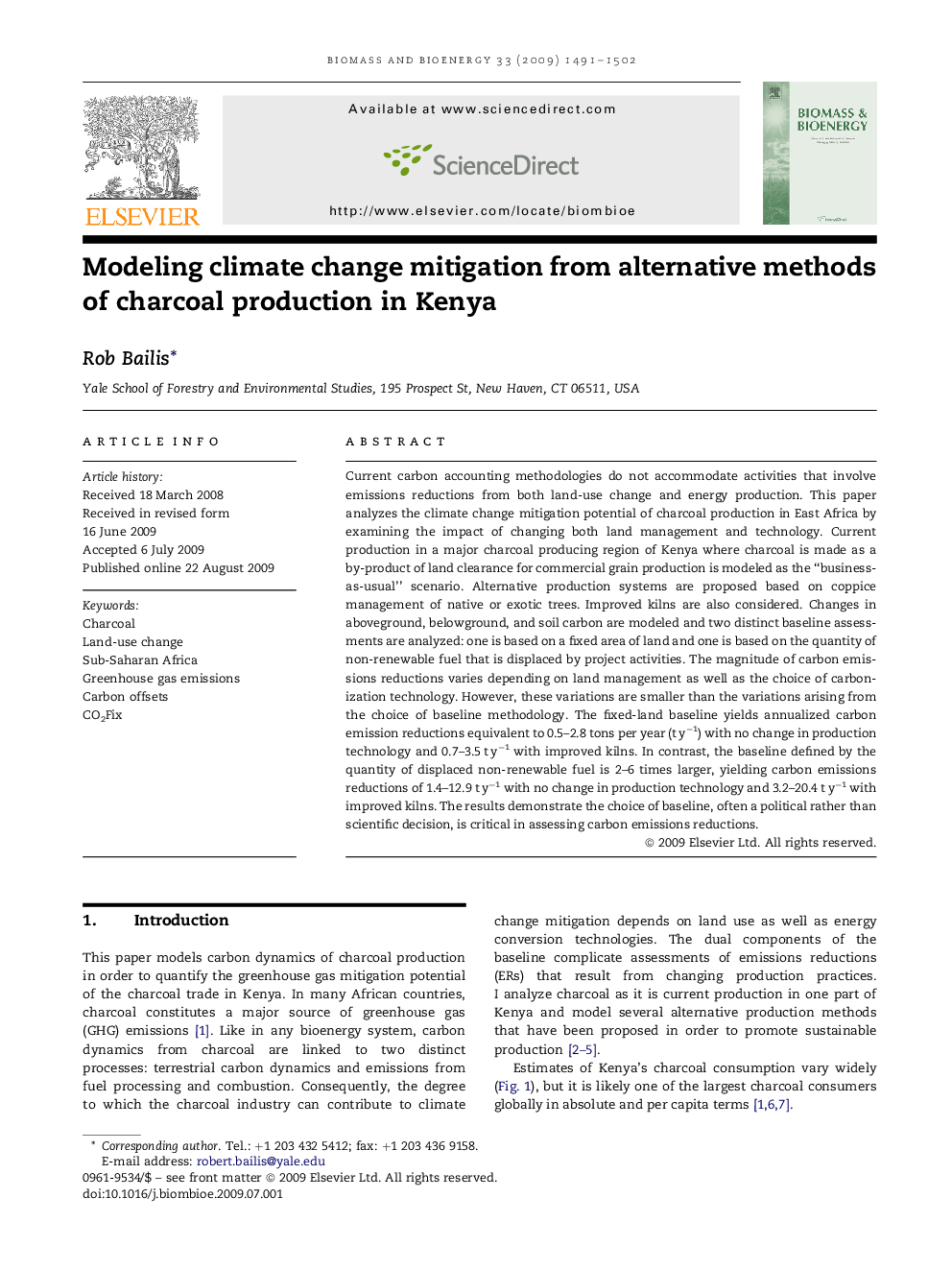| کد مقاله | کد نشریه | سال انتشار | مقاله انگلیسی | نسخه تمام متن |
|---|---|---|---|---|
| 678467 | 888649 | 2009 | 12 صفحه PDF | دانلود رایگان |
عنوان انگلیسی مقاله ISI
Modeling climate change mitigation from alternative methods of charcoal production in Kenya
دانلود مقاله + سفارش ترجمه
دانلود مقاله ISI انگلیسی
رایگان برای ایرانیان
کلمات کلیدی
موضوعات مرتبط
مهندسی و علوم پایه
مهندسی شیمی
تکنولوژی و شیمی فرآیندی
پیش نمایش صفحه اول مقاله

چکیده انگلیسی
Current carbon accounting methodologies do not accommodate activities that involve emissions reductions from both land-use change and energy production. This paper analyzes the climate change mitigation potential of charcoal production in East Africa by examining the impact of changing both land management and technology. Current production in a major charcoal producing region of Kenya where charcoal is made as a by-product of land clearance for commercial grain production is modeled as the “business-as-usual” scenario. Alternative production systems are proposed based on coppice management of native or exotic trees. Improved kilns are also considered. Changes in aboveground, belowground, and soil carbon are modeled and two distinct baseline assessments are analyzed: one is based on a fixed area of land and one is based on the quantity of non-renewable fuel that is displaced by project activities. The magnitude of carbon emissions reductions varies depending on land management as well as the choice of carbonization technology. However, these variations are smaller than the variations arising from the choice of baseline methodology. The fixed-land baseline yields annualized carbon emission reductions equivalent to 0.5-2.8 tons per year (t yâ1) with no change in production technology and 0.7-3.5 t yâ1 with improved kilns. In contrast, the baseline defined by the quantity of displaced non-renewable fuel is 2-6 times larger, yielding carbon emissions reductions of 1.4-12.9 t yâ1 with no change in production technology and 3.2-20.4 t yâ1 with improved kilns. The results demonstrate the choice of baseline, often a political rather than scientific decision, is critical in assessing carbon emissions reductions.
ناشر
Database: Elsevier - ScienceDirect (ساینس دایرکت)
Journal: Biomass and Bioenergy - Volume 33, Issue 11, November 2009, Pages 1491-1502
Journal: Biomass and Bioenergy - Volume 33, Issue 11, November 2009, Pages 1491-1502
نویسندگان
Rob Bailis,